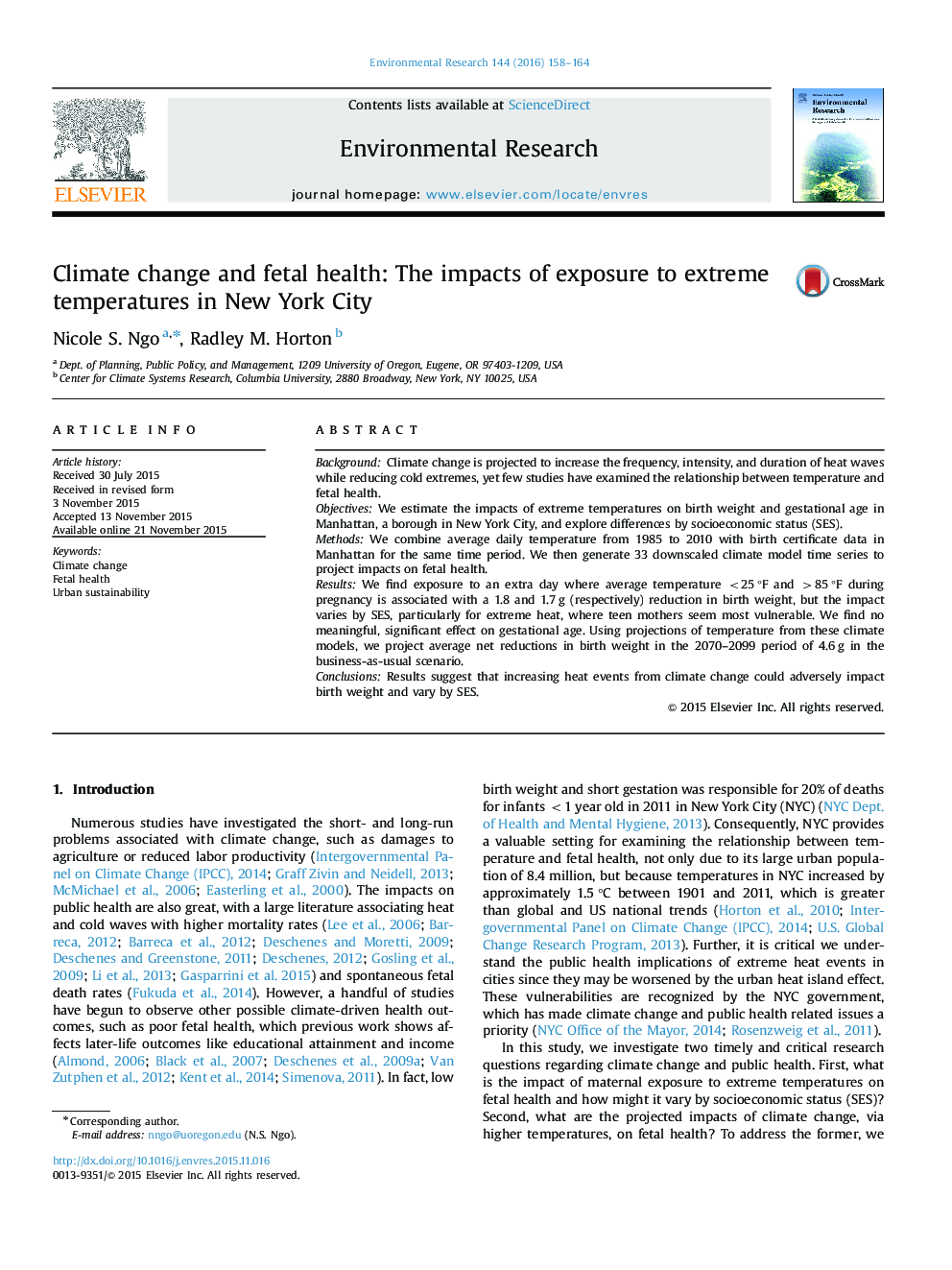| Article ID | Journal | Published Year | Pages | File Type |
|---|---|---|---|---|
| 4469666 | Environmental Research | 2016 | 7 Pages |
•Climate change is projected to increase the frequency and duration of heat waves.•We estimate the impacts of extreme temperatures on fetal health in New York City.•We find modest reductions in birth weight from exposure to extreme temperatures.•We also find impacts on fetal health vary by socioeconomic status.•Using the latest climate models, we project average net reductions in birth weight.
BackgroundClimate change is projected to increase the frequency, intensity, and duration of heat waves while reducing cold extremes, yet few studies have examined the relationship between temperature and fetal health.ObjectivesWe estimate the impacts of extreme temperatures on birth weight and gestational age in Manhattan, a borough in New York City, and explore differences by socioeconomic status (SES).MethodsWe combine average daily temperature from 1985 to 2010 with birth certificate data in Manhattan for the same time period. We then generate 33 downscaled climate model time series to project impacts on fetal health.ResultsWe find exposure to an extra day where average temperature <25 °F and >85 °F during pregnancy is associated with a 1.8 and 1.7 g (respectively) reduction in birth weight, but the impact varies by SES, particularly for extreme heat, where teen mothers seem most vulnerable. We find no meaningful, significant effect on gestational age. Using projections of temperature from these climate models, we project average net reductions in birth weight in the 2070–2099 period of 4.6 g in the business-as-usual scenario.ConclusionsResults suggest that increasing heat events from climate change could adversely impact birth weight and vary by SES.
